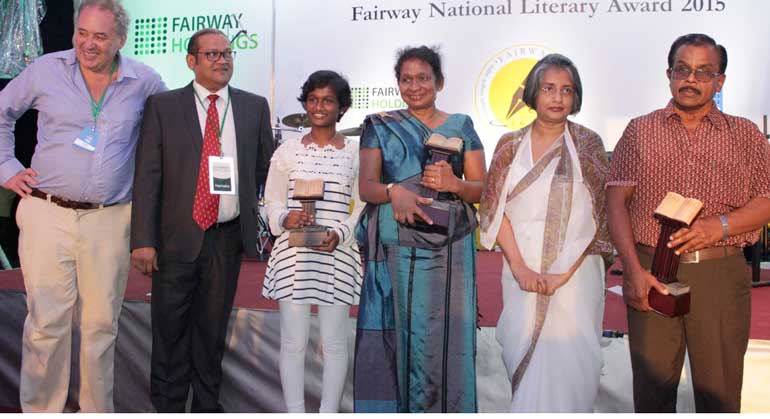Sunday Feb 15, 2026
Sunday Feb 15, 2026
Thursday, 7 January 2016 00:00 - - {{hitsCtrl.values.hits}}
 By Indooshan Shanthakumaran
By Indooshan Shanthakumaran
Sri Lanka has a huge history of democracy. We have proudly elected our rulers for ourselves since we received independence. This includes the so-called ‘powerful leaders’ and the highly-debated executive presidency (voted by the people) and the ‘undefeatable leaders’ who were out-voted by the citizens of the country. We strongly believe in the ballot box revolution. However, the youth (the future) of the country is not very interested in politics and civic engagements.
What worries me is that the statistics also reveal the same thing. One good thing out of the upcoming results of the survey is that they do take the right to vote seriously and therefore cast their vote. This is a good sign. The Sri Lanka National Human Development Report (NHDR) 2014 on Youth and Development indicates that a total of 71.5% of youth participate in voting as their only form of political engagement. When we see beyond that the total civic engagement is limited to 9.4%. The party work is done by the 1.9% of the youth (1.6% signs petition for the issues!) where 4.6% youth like me work with activists and rights movement. 1.3% of them are involved in trade union activities. The above statistics reveal that there is a wide gap between politics and youth. The current Parliament is a perfect reflection of the statement, how many current members are below 40 years of age?
Stepping out
One of the main reasons for stepping out is youth find politics to be a dirty game. The National Youth Survey of 2013 indicates that 37.3% of youth believe that politics is full of corruption. Another 27% believe it is fully politicised and apart from that they keep aside due to the high violence practiced and inability for them to speak openly about whatever they feel.
According to the NHDR, the state responses to past youth insurrections were extremely violent, leading to large numbers of deaths and mass destruction. These increasingly violent responses are what have gradually led to an intolerant and repressive approach towards youth engagement in politics.
Is this the actual reason? Not really. One major issue which we have to address is to create a solid platform for the youth to get involved in mainstream politics. Most of the national political parties have a separate youth wing. However, the members of the youth wing are only used for booting people for the meetings, to arrange stage and party decorations, and serve lunch packets and alcohol for the participants of the meetings. There is a well-organised youth parliament in Sri Lanka but it was not enough to bring larger number of people into the arena.
There is no clear avenue for them to discuss issues with the heads of parties. There is no way to get involved in the decision-making process. Even political parties are highly reluctant to give seats to run in the election. They believe young people are useless and never win. To an extent we have to agree that many youth do not have a proper knowledge about the political system of Sri Lanka. Therefore, the party heads are not interested in trusting their power.
This situation must change; the political parties should take up this as an opportunity to have an inclusion of the youth in the politics. Basic political education should be given to young people. Their attitudes towards the politics and politicians should be changed. The party heads must take their opinion into consideration when decision making is done. At least with the current electoral system reform there should be a proposal to give youth more space to operate.
Media’s responsibility
The media also should take up the responsibility and play a solid role as they have to focus more on building a platform to change the attitude of the society towards politics rather than exposing the vulnerability and describing the Parliament as the clown house. The NHDR states that mainstream media produces negative images of youth and often projects student politics as violent and inappropriate.
If the politicians are corrupt and not worthy of office, people should be in a position to out vote them. If these changes happen I’m sure many youth will step up in to politics and we will have a huge young energy is been passed in the civic system of the country.
According to the NHDR Sri Lanka is primarily an adult-centred society where adults are respected. These socio-cultural normal have influenced the general goals of young people. The reluctance among adults to encourage youth to be more politically and socially active is linked to the consequences of the violence the country has experienced in the past. The NHDR goes on to mention how youth leadership roles are treated with lesser importance, unless exercised within carefully managed and controlled environments.
Ultimately, it is evident that it is not the fact that our youth is ‘useless’ it’s actually they are ‘used less’ by the system.
(UNLOCKED is a space for Sri Lankan youth to express their views and opinions on development with the aim of creating positive change in the world. The views expressed in the blogs are solely those of the author’s. UNDP Sri Lanka and Daily FT does not represent or endorse the views expressed in these blogs. Read more about the UNLOCKED initiative at www.lk.undp.org)